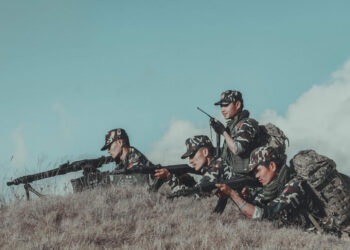RANGOON — Burma’s upcoming general election will mark a “milestone” in the country’s reform process, UN Secretary General Ban Ki-moon said on Tuesday, while underscoring a number of disappointing developments in poll procedures to date.
Addressing a meeting of the UN Partnership Group on Myanmar, as the country is officially called, the secretary general stressed the importance of ensuring a “free and unfettered process for candidates and voters.”
Delivered in New York during a session of the 70th General Assembly and in advance of Burma’s Universal Periodic Review (UN-UPR), a human rights assessment carried out for all UN member states on a rotating 4.5-year schedule, Ban’s remarks contained a number of recommendations to the Burmese government to ensure credibility of the Nov. 8 poll, which is expected to be the nation’s freest and fairest following decades of military rule.
Addressing the disenfranchisement of hundreds of thousands of stateless Rohingya Muslims, who earlier this year had their suffrage rights revoked, Ban said authorities “must ensure that all those who were able to vote in previous elections retain those rights.”
“The revocation of white cards is a step in the wrong direction,” Ban said, referring to temporary identity cards that allowed them to vote in previous polls. “I am deeply disappointed by this effective disenfranchisement of the Rohingya and other minority communities.”
Last week, Burma’s Foreign Minister Wunna Maung Lwin, who was present at Tuesday’s meeting, defended the government’s decision to disenfranchise the beleaguered minority, likening their status to green card holders in the United States.
The Burmese government and much of the population view Rohingya as illegal immigrants from Bangladesh, though many say they have lived in the country for generations. The group is denied citizenship by a controversial law passed in 1982, and is officially referred to as “Bengali.”
“I am disappointed that the authorities have so far not been able to summon the political will for decisive action on the broader issue of citizenship,” Ban said of the government’s sluggish response to calls to normalize the naturalization process.
Most Rohingya reside in western Burma’s Arakan State, also called Rakhine, where deadly riots broke out between Muslim and Buddhist communities in mid-2012. About 140,000 people were initially displaced by the violence, mostly Rohingya, many of whom still live in displacement camps where they are subject to restrictions on movement, education, healthcare and livelihoods.
“In Rakhine, I am appalled by the humanitarian conditions of the Rohingya and Kaman communities,” Ban said, pointing out that those circumstances ultimately led to a regional refugee crisis.
Rights groups estimate that some 100,000 people fled Arakan State by boat in efforts to reach Malaysia or other neighboring countries, many of them ending up in the hands of human traffickers. The secretary general warned that more people could attempt to make the perilous journey in the months to come, as the monsoon season comes to a close.
More broadly, Ban raised the issue of a “rise of chauvinist sentiment” and “strident anti-Muslim sentiment… as well as antagonism against international organizations, including the United Nations.”
In January of this year, the UN human rights rapporteur for Burma, Yanghee Lee, was met with protest upon her second visit to the country since assuming the post in mid-2014. Shortly after she departed, influential monk U Wirathu referred to her as a “bitch” and a “whore” during a public rally further fuelling a widespread perception that the United Nations was biased in favor of Muslims.
When she returned in August, Yanghee told reporters that the government “hampered” her mandate by limiting her length of stay, denying her access to Arakan State, canceling her appointments and intimidating her interlocutors. Her predecessor Tomás Ojea Quintana also faced hostility in the country in 2013, coming under attack by an angry mob in central Burma’s Meiktila, the site of deadly communal riots earlier that year.
“Regrettably, recent steps by the Government risk to further fan the flames of the communal divide,” the secretary general warned, referring to the recent enactment of four so-called “race and religion protection laws” propagated by Wirathu and a Buddhist nationalist movement with which he is associated.
The Ministry of Foreign Affairs has routinely rejected the implications of UN rights envoys, and has yet to make good on a commitment to establish an in-country headquarters for the Office of the High Commissioner for Human Rights (OHCHR). On this point Ban stated his “wish to reiterate the importance of the early establishment of an OHCHR office with a full mandate in Myanmar.”
Also on Tuesday, a leading human rights group, Fortify Rights, issued a formal submission to the United Nations preempting the UN-UPR set to take place on Nov. 9, the day after Burma’s landmark election. The group said the submission documented “widespread and systematic torture, killings, forced population transfers, persecution, and other international crimes committed by Myanmar authorities with impunity since 2011.”
Fortify Rights also called for the release of all prisoners of conscience in Burma. President Thein Sein came close to fulfilling his promise of freeing all political prisoners by the end of 2013, but many activists have since been jailed and hundreds now await trial, including scores of youths and their supporters jailed after a brutal March 10 crackdown on student demonstrations.
Ban commended advances in freedom of expression and the press, but stressed that both need to be “strengthened,” adding that “actions against media and activists as well as arbitrary arrests and detention must stop.”
The secretary general said he met with Thein Sein on Sept. 3, when he conveyed the importance of conducting and honoring the results of the upcoming election to the satisfaction of the electorate and political leaders.
The current session of the UN General Assembly began on Sept. 15. Ban Ki-moon, a South Korean statesman, is nearing the end of his second term as secretary general after his appointment in 2007. His successor will be selected during the General Assembly in late 2016.

















